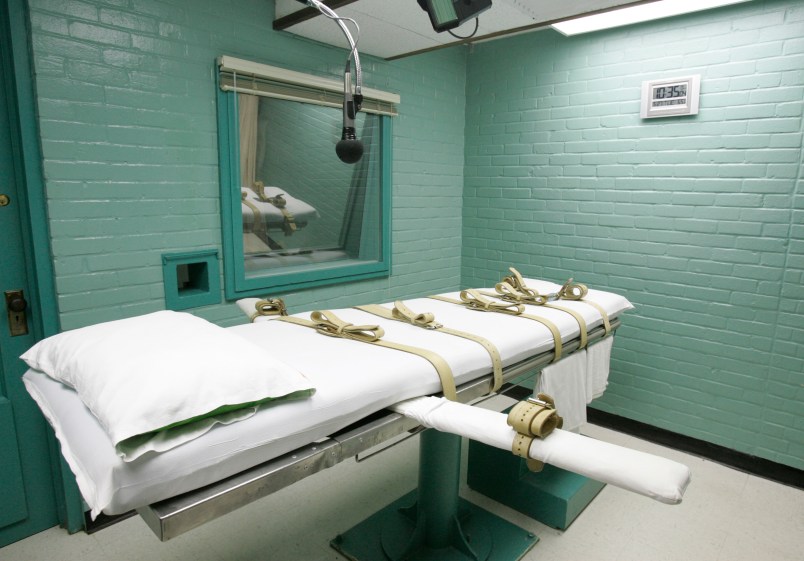TUCSON, Ariz. (AP) — Arizona tried to illegally import a lethal injection drug that’s not approved in the U.S. but never obtained it after federal agents stopped the shipment at the Phoenix airport, according to documents obtained by The Associated Press.
Arizona paid nearly $27,000 for sodium thiopental, an anesthetic that has been used to carry out executions but is no longer manufactured by FDA-approved companies, the documents said. When the drugs arrived via British Airways at the Phoenix International Airport in July, they were seized by federal officials and have not been released, according to the documents.
“The department is contesting FDA’s legal authority to continue to withhold the state’s execution chemicals,” state Department of Corrections spokesman Andrew Wilder said Thursday.
Arizona and other death penalty states have been struggling to obtain legal execution drugs for several years after European companies refused to sell the drugs, including sodium thiopental. States have had to change drug combinations or, in some cases, put executions on hold temporarily as they look for other options.
The Arizona documents obtained by the AP were released as part of a lawsuit against the corrections department over transparency in executions. The AP is a party in the lawsuit.
They do not reveal what country or company Arizona tried to import the drugs from. Earlier this year, Nebraska was told by the FDA that it could not legally import the drug it needed to carry out lethal injections after the state paid $54,400 for drugs from Harris Pharma, a distributor in India.
Other states also have looked into buying drugs from international pharmacies. Ohio, which has halted executions until at least 2017 because of a lack of drugs, sent a letter earlier this month to the FDA asserting that the state believes it can obtain a lethal-injection drug from overseas without violating any laws.
On Thursday, Texas said it had obtained a license from the U.S. Drug Enforcement Administration to import sodium thiopental. However, Texas Department of Criminal Justice spokesman Jason Clark could not say whether the state had purchased or received any drugs from overseas.
Executions have been placed on hold in Arizona following the lengthy death of Joseph Rudolph Wood in July 2014. The state has said it doesn’t plan on seeking death warrants for inmates until it resolves a lawsuit originally filed by Wood and other death row inmates seeking information about the drugs used in executions. It has also said that when it resumes executions, it will no longer administer the drugs used in Wood’s execution, which did not include sodium thiopental.
Wood, convicted of killing his ex-girlfriend and her father, snorted repeatedly throughout the 90 minutes it took for him to die. Authorities later revealed that he was administered 15 doses of midazolam and a painkiller. He was supposed to die with one.
Dale Baich, Wood’s attorney, was critical of Arizona’s attempt to import drugs for lethal injections.
“Once again, the Arizona Department of Corrections is trying to skirt the law in order to get execution drugs. Nobody is above the law, and that includes the Arizona Department of Corrections,” Baich said Thursday.
The corrections department has appealed to the FDA, promising to not use the drug until the agency approves or until a court allows it to use it, according to a letter by director Charles Ryan.
But the FDA has not budged.
Other states are working around the drug shortage. Tennessee reinstated the electric chair for use if it can’t obtain lethal drugs, and Utah has reinstated the firing squad as a backup method.
____
Associated Press reporters Bob Christie in Phoenix and Terry Wallace in Dallas contributed to this report.
Copyright 2015 The Associated Press. All rights reserved. This material may not be published, broadcast, rewritten or redistributed.







But I thought the Republicans hated drug smugglers?
It depends on the goal. If the drugs are for executing people, they are ok with that. If the drugs are for people to enjoy, they are against it.
America’s a Death Cult.